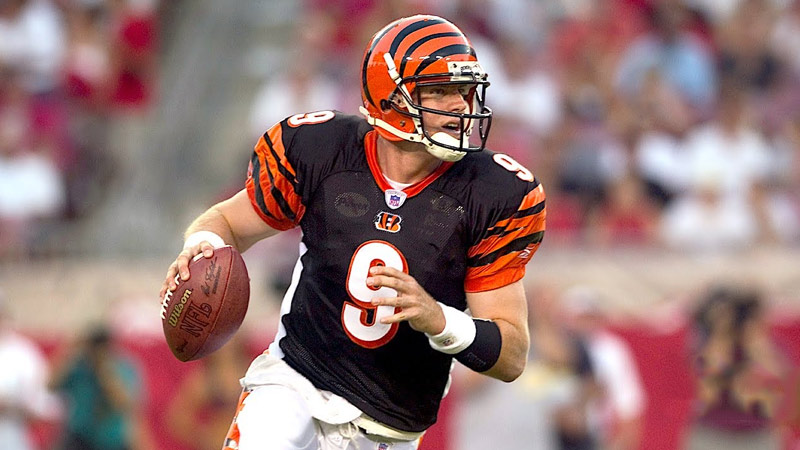The NFL is no stranger to blockbuster trades that send shockwaves through the league and redefine the fortunes of the teams involved.
These monumental trades often involve star players, draft picks, and sometimes even franchise-altering decisions. In this blog post, we delve into the annals of NFL history to bring you the “Top 10 Biggest NFL Trades Of All Time.”
From Herschel Walker’s historic trade that involved 18 players and draft picks to the game-changing acquisition of Randy Moss by the New England Patriots, these trades have left an indelible mark on the league’s landscape.
We’ll explore the players, the circumstances, and the lasting impacts of these transactions that continue to be discussed and analyzed by NFL enthusiasts. So, stay focused.
What Is the NFL Trade?
The NFL (National Football League) trade is a transaction in which two or more NFL teams exchange players or draft picks.
It allows teams to acquire new talent, address roster needs, or improve their team’s overall performance. NFL trades can occur during specific periods of the year:
Offseason
Trades can happen during the NFL offseason, which typically begins after the Super Bowl and lasts until the start of the next regular season.
During this time, teams can trade players and draft picks to build or reconfigure their rosters for the upcoming season.
In-Season
The NFL also has a trade deadline during the regular season. This deadline is usually around the midpoint of the season. Teams can trade players and draft picks until this deadline, after which trades are not allowed until the offseason.
During the NFL Draft
Teams can also trade their picks in the NFL Draft to move up or down in the draft order. These draft pick trades are a significant part of the NFL draft process and are often used to acquire top talent.
NFL trades can involve various combinations of assets, including:
Player for Player
Teams can swap players, often of similar value or in positions of need for each team.
Player for Draft Picks
A team may trade a player in exchange for one or more draft picks. This is common when a team is looking to rebuild and wants to acquire future talent through the draft.
Draft Picks for Draft Picks
Teams can also trade draft picks with each other. For example, a team might trade their first-round pick for another team’s second and third-round picks.
Conditional Trades
Some trades involve conditional elements, such as a player’s performance or playing time affecting the compensation. If certain conditions are met, the trade may change in value.
NFL trades are subject to various rules and regulations set by the league, and they must be approved by the NFL’s front office.
Trades can have a significant impact on a team’s fortunes and are a key strategy for teams looking to improve their competitiveness.
Top 10 Biggest NFL Trades Of All Time
Here is the list of the top 10 biggest NFL trades of all time. You will find all the essential information about the trade in the list.
1. Herschel Walker Trade
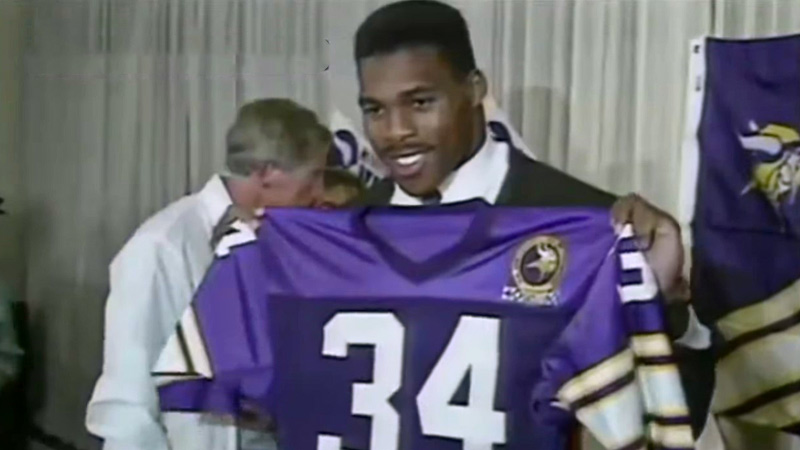
- Date: October 12, 1989
- Teams Involved: Dallas Cowboys, Minnesota Vikings, San Diego Chargers
Players/Picks Traded: Herschel Walker, 12 draft picks (conditional)
The Herschel Walker trade remains one of the most complex and impactful deals in NFL history.
The Cowboys orchestrated a blockbuster trade with the Vikings and Chargers, acquiring a bounty of draft picks and players in exchange for the star running back.
Walker’s departure marked the beginning of Dallas’s dynasty, as they used the acquired assets to build a championship-caliber team. The Vikings, however, struggled, and Walker’s impact was not commensurate with the hefty price they paid.
The trade’s repercussions were felt for years, illustrating the strategic importance of player transactions in shaping the league’s landscape.
2. Ricky Williams Trade
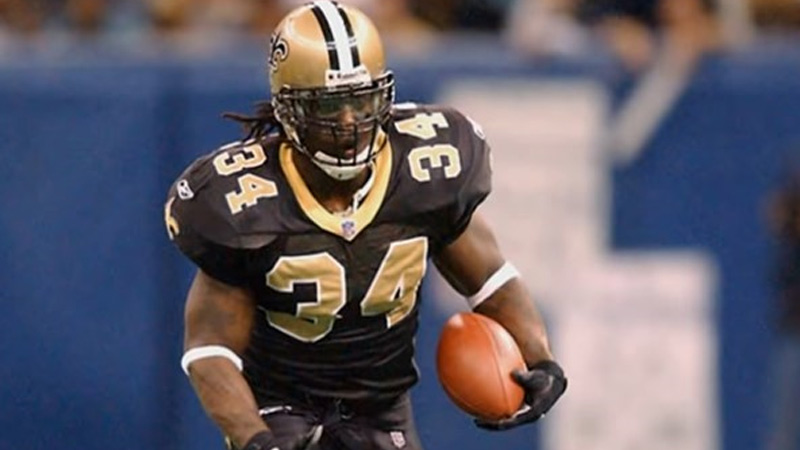
- Date: April 25, 1999
- Teams Involved: New Orleans Saints, Washington Redskins
Players/Picks Traded: Ricky Williams, eight draft picks (including multiple first-rounders)
In a bold move, the New Orleans Saints traded their entire draft, plus additional picks, to move up and select Ricky Williams, a Heisman-winning running back.
This deal, known as the “Ditka Deal” due to Saints coach Mike Ditka’s strong endorsement of Williams, was a high-stakes gamble.
Williams’ time in New Orleans was productive, but the team struggled overall. The Redskins, benefiting from a treasure trove of draft picks, were able to reshape their roster.
The trade serves as a cautionary tale about the risks and rewards of putting all resources into a single player.
3. Marshall Faulk Trade
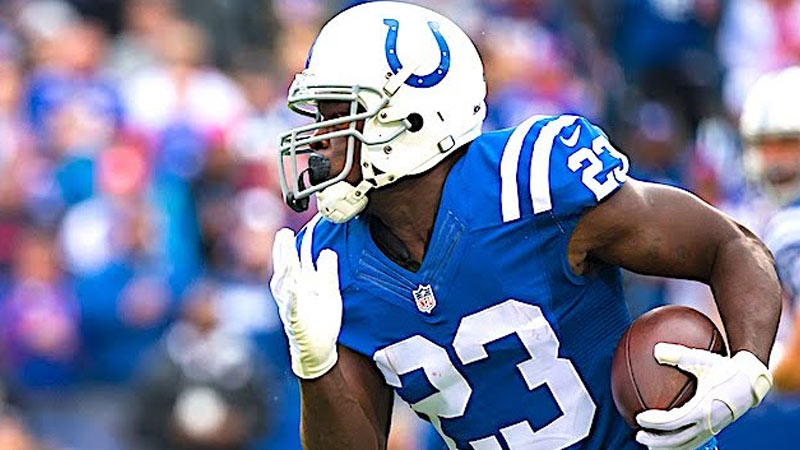
- Date: April 15, 1999
- Teams Involved: Indianapolis Colts, St. Louis Rams
Players/Picks Traded: Marshall Faulk, 1999 second and fifth-round draft picks
The 1999 trade of Marshall Faulk from the Colts to the Rams is a textbook example of a deal that reshaped the fortunes of both teams. Faulk, a versatile running back, was traded to the Rams in exchange for draft picks.
This trademarked a turning point for the Rams, who went on to win the Super Bowl in 1999. Faulk became a focal point of their high-powered offense, showcasing his dual-threat abilities as a rusher and receiver.
On the flip side, the Colts used the acquired picks to lay the foundation for future success. The Marshall Faulk trade is a testament to how a single player can be a catalyst for a team’s transformation.
4. Eric Dickerson Trade
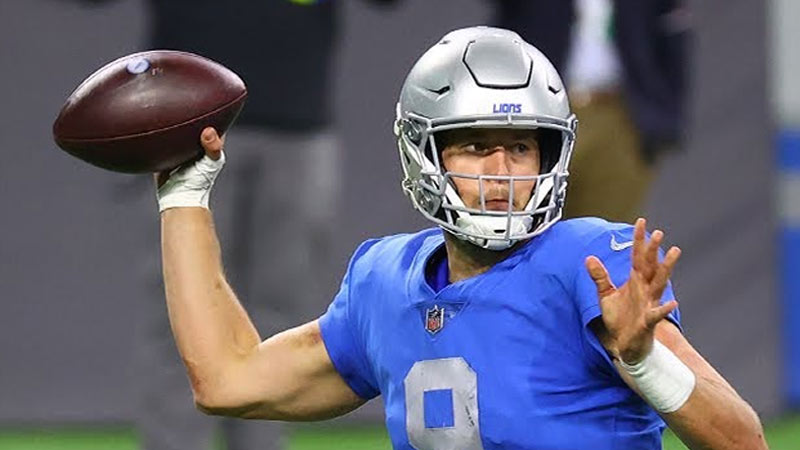
- Date: October 31, 1987
- Teams Involved: Indianapolis Colts, Los Angeles Rams
In a landmark trade, the Indianapolis Colts acquired running back Eric Dickerson from the Los Angeles Rams on October 31, 1987. This deal sent shockwaves through the NFL, as Dickerson was a highly coveted and accomplished player.
The Colts, in dire need of a star running back, gave up a package of players and draft picks to secure Dickerson’s services. His impact was immediate, transforming the Colts’ offense and leaving an indelible mark on the franchise.
Dickerson’s tenure with the Colts solidified his legacy as one of the greatest running backs in NFL history.
5. Eli Manning Trade
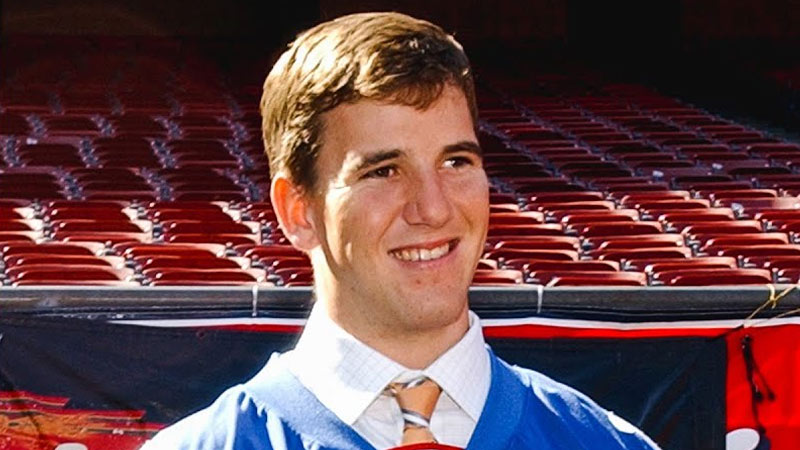
- Date: April 24, 2004
- Teams Involved: San Diego Chargers, New York Giants
On April 24, 2004, the San Diego Chargers and New York Giants orchestrated a blockbuster trade that would shape the course of two franchises.
The Chargers selected Eli Manning with the first overall pick in the NFL Draft but promptly traded him to the Giants for quarterback Philip Rivers, who was selected fourth overall, and a package of future draft picks.
Manning went on to become the face of the Giants, leading them to two Super Bowl victories and etching his name in NFL history.
The trade remains a pivotal moment in the careers of both quarterbacks and is remembered as one of the most significant draft-day deals in NFL history.
6. John Elway Trade
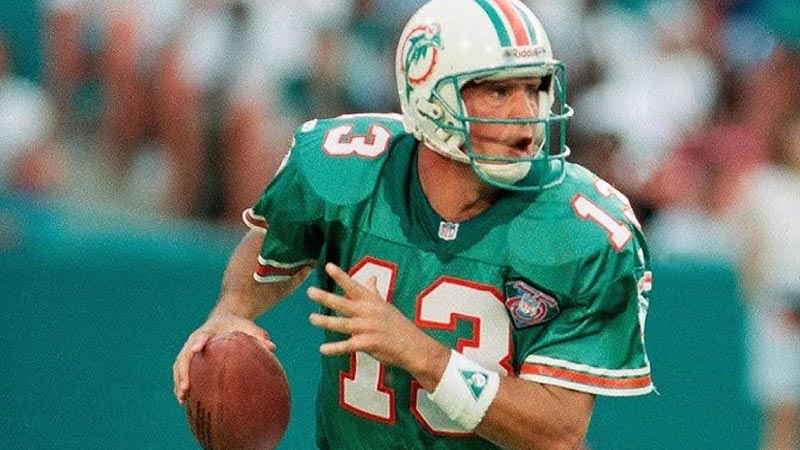
- Date: May 2, 1983
- Teams Involved: Baltimore Colts, Denver Broncos
In a move that altered the course of NFL history, the Baltimore Colts traded John Elway to the Denver Broncos on May 2, 1983.
Elway, a highly touted quarterback prospect, had made it clear that he did not want to play for the Colts and would pursue a career in baseball if drafted by them. Sensing the urgency, the Broncos orchestrated a trade that included multiple players and draft picks.
Elway’s impact on the Broncos was transformative, leading them to multiple Super Bowls and earning him a place among the greatest quarterbacks in NFL history.
The trade showcased the power that star players could wield in shaping their own destinies within the league.
7. Jay Cutler Trade
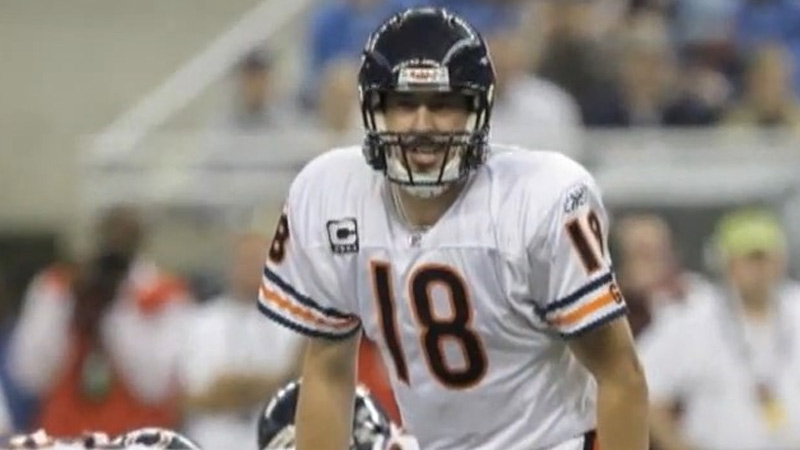
- Date: April 2, 2009
- Teams Involved: Denver Broncos, Chicago Bears
In a blockbuster trade, the Denver Broncos sent quarterback Jay Cutler to the Chicago Bears on April 2, 2009. The trade was prompted by a strained relationship between Cutler and new Broncos head coach Josh McDaniels.
Cutler, a Pro Bowl quarterback, was traded for quarterback Kyle Orton, two first-round draft picks, and a third-round pick. This move had significant ramifications for both teams.
Cutler became the face of the Bears’ franchise, while the Broncos faced challenges in finding a stable replacement for their departing signal-caller.
8. Brett Favre Trade
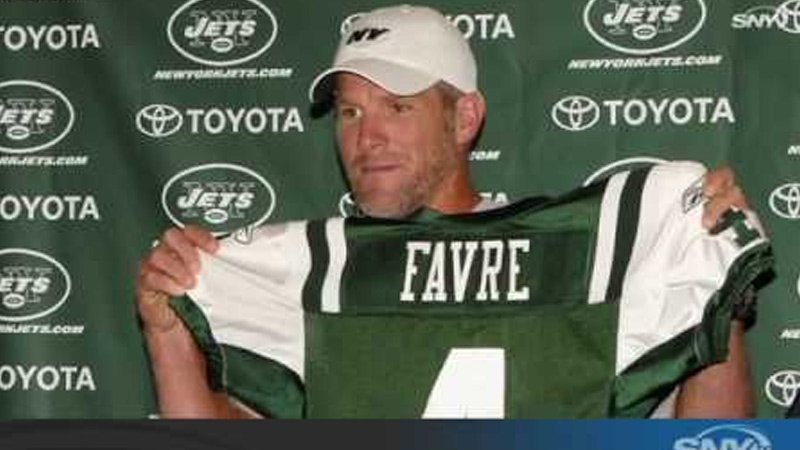
- Date: February 10, 1992
- Teams Involved: Green Bay Packers, Atlanta Falcons
On February 10, 1992, the Green Bay Packers acquired future Hall of Fame quarterback Brett Favre in a trade with the Atlanta Falcons. Favre, who initially struggled with consistency in Atlanta, found his true calling in Green Bay.
This trade marked the beginning of Favre’s legendary career with the Packers, where he would go on to become one of the greatest quarterbacks in NFL history, winning three MVP awards and a Super Bowl championship.
9. Randy Moss Trade
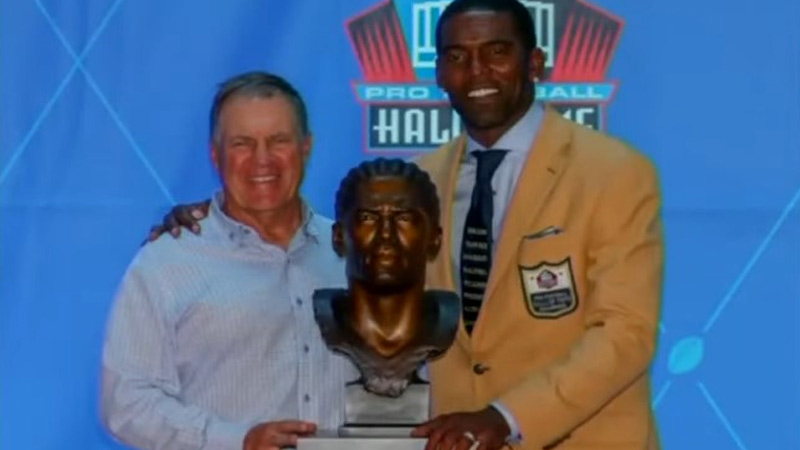
- Date: April 29, 2007
- Teams Involved: Oakland Raiders, New England Patriots
Randy Moss, a talented wide receiver, was traded from the Oakland Raiders to the New England Patriots on April 29, 2007.
The Patriots, known for their strategic moves, acquired Moss for a fourth-round draft pick. This trade proved to be a game-changer, as Moss had a record-setting season with quarterback Tom Brady.
Moss’s impact was profound, as he set the single-season touchdown reception record with 23, helping the Patriots achieve a perfect regular-season record of 16-0.
10. Carson Palmer Trade
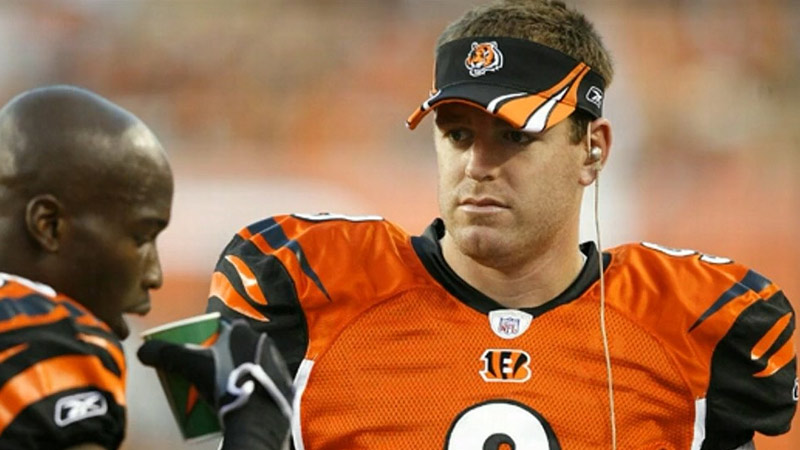
- Date: October 18, 2011
- Teams Involved: Cincinnati Bengals, Oakland Raiders
On October 18, 2011, the Cincinnati Bengals traded quarterback Carson Palmer to the Oakland Raiders.
Palmer, who had expressed his desire to leave Cincinnati, was acquired by the Raiders in exchange for a first-round draft pick in 2012 and a conditional second-round pick in 2013.
The trade allowed Palmer to revive his career in Oakland, and he became a key figure for the team. This move also marked a significant shift in the dynamics of both franchises, with the Bengals looking towards a new era without Palmer at the helm.
What Makes the NFL Trades Historical?
Historical NFL trades are those that stand out due to their significance, impact, or uniqueness in the history of the National Football League. Several factors can contribute to making NFL trades historical:
Star Player Movement
When a high-profile or star player is traded, it often becomes a historical trade. These trades can dramatically alter the fortunes of the teams involved and generate significant media attention.
For example, the trade of quarterback Peyton Manning from the Indianapolis Colts to the Denver Broncos in 2012 was a historical trade due to Manning’s status as one of the greatest quarterbacks in NFL history.
Championship Impact
Trades that directly lead to a team winning a Super Bowl or significantly improving their chances of doing so are often remembered as historical.
For instance, the New England Patriots’ acquisition of Randy Moss in 2007 played a pivotal role in their record-breaking 16-0 regular season.
Blockbuster Deals
Trades involving multiple players, draft picks, or a combination of both can be considered historical due to their complexity and the potential risks and rewards they entail.
The trade that sent Herschel Walker from the Dallas Cowboys to the Minnesota Vikings in 1989 is often cited as a blockbuster trade because it involved numerous players and draft picks.
Franchise Rebuilding
Trades that mark the beginning of a franchise’s rebuilding phase can be significant.
When a team decides to trade away multiple star players in exchange for draft picks and younger talent, it can signal a shift in team strategy.
The Cleveland Browns’ trade of Trent Richardson to the Indianapolis Colts in 2013 is an example of such a trade.
Unconventional or Controversial Trades
Trades that are unconventional or generate controversy can also become historical. This may include unexpected player swaps, disputes between teams, or trades that defy conventional wisdom.
The trade of Brett Favre from the Green Bay Packers to the New York Jets in 2008, after a long and legendary career with the Packers, generated significant debate and media attention.
Long-Term Impact
Some trades may not appear significant at the time but have a lasting impact on the league or a team’s future. These trades can become historical as their consequences become more evident over time.
An example is the trade that sent Drew Brees from the San Diego Chargers to the New Orleans Saints in 2006, which eventually led to the Saints winning their first Super Bowl in 2010.
Historical NFL trades are typically characterized by the involvement of star players, their impact on championships or franchise direction, their complexity, controversy, or their long-term consequences on the league.
FAQs
Which NFL trade is considered one of the biggest of all time?
The trade of Herschel Walker from the Dallas Cowboys to the Minnesota Vikings in 1989 is widely regarded as one of the biggest NFL trades ever, involving numerous players and draft picks.
Who are some notable players involved in historic NFL trades?
Star players like Randy Moss, Brett Favre, and Peyton Manning have been part of some of the biggest NFL trades due to their impact on their respective teams.
What was the impact of the trade involving Randy Moss to the New England Patriots?
The trade of Randy Moss to the Patriots in 2007 transformed their offense, contributing to an unprecedented 16-0 regular season and solidifying Moss’s legacy as one of the greatest receivers in NFL history.
Which trade played a pivotal role in the New Orleans Saints’ Super Bowl victory in 2010?
The trade that brought Drew Brees to the New Orleans Saints in 2006 from the San Diego Chargers played a crucial role in the team’s Super Bowl triumph in 2010.
How did the trade of Peyton Manning to the Denver Broncos impact both teams?
Peyton Manning’s trade to the Denver Broncos in 2012 rejuvenated Denver’s franchise, leading to multiple playoff appearances and a Super Bowl victory.
The Indianapolis Colts, meanwhile, embarked on a rebuilding phase with a new quarterback after Manning’s departure.
Wrapping Up
In revisiting the “Top 10 Biggest NFL Trades Of All Time,” we’ve journeyed through pivotal moments that shaped the NFL’s history.
These trades showcased the high-stakes world of professional football, where teams wagered their futures to secure talent or change their course.
From Herschel Walker’s massive trade that defined the term “blockbuster” to the legendary Randy Moss trade that revolutionized offenses, these transactions etched their places in the hearts and minds of football fans.
They demonstrated how a single trade could turn an underperforming team into a Super Bowl contender or, conversely, initiate a rebuilding era.
The impact of these trades transcends the playing field; they are woven into the fabric of NFL lore. Thank you for supporting us.

